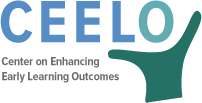RELATIONSHIP BUILDING
Relationships are key in early childhood education. Relationships abound whether they involve teacher and child, teacher and parent, director and teacher, state administrator and policymakers, or collegial relationships between program leaders are at the heart of our work. By its very nature, early education is collaboration in action.
It is important for early education leaders to be skilled in creating supportive relationships that engage different individuals and organizations, and this relationship building demands strong interpersonal skills. Perhaps most important are strong relationships within early education teams at the SEA or LEA level where effective early education leaders bridge “silos” of interest through open, honest, and consistent communication. Relationships between the SEA and LEA or local programs are also essential to ensure alignment and continuity of services for young children. SEAs work collaboratively with other state agencies such as human services and health, organizations, and programs such as Head Start, so it is in everyone’s best interest to have positive and respectful relationships across institutions made possible through communication. Communication skills, including problem-solving and negotiation, support the successful development and implementation of high quality early education services.
Professional relationships take various forms. Leaders frequently find themselves playing a multitude of roles in their relationships— student, colleague, supervisor, coach, or mentor to mention a few.
In recent years, coaching has become an increasingly important role which weaves interpersonal skills, knowledge, communication, and relationship building in support of achieving goals. “To coach is to help an individual take action toward their own goals while simultaneously developing their own expertise in planning, reflecting, problem solving and decision making. To coach takes a nonjudgmental stance and uses tools of open-ended questions, wait time, paraphrasing and probing for specificity. By listening and focusing on the perspectives of the other person” (The Adaptive School, Garmston & Wellman, 2003). The skillful coach encourages and supports others. Adopting a coaching mindset is an integral part of being a good leader, as well as seeking opportunities to be coached by a mentor.
Resources
- Self-directed Evaluation Conversations: A Growth Producing Process (Dolcemascolo, Ellison & Miori-Merola; 2012)
- The Consultative Stance (video)
- Developing Facilitation Skills (Community Tool Box)
PRINCIPLED NEGOTIATION: COMMUNICATING SO EVERYONE WINS
It is inevitable for early education leaders to find themselves in the midst of conflict of two or more competing interests. Early education leaders are in a unique position to facilitate and achieve a “win – win” solution. Using the process of Principled Negotiation (Fischer & Ury, 1981), disparate parties jointly address an issue based on common interest in an effort to seek consensus and move forward in a manner that does not jeopardize ongoing relationships. Principled negotiation involves four fundamental principles: 1) separate the people from the problem; 2) focus on interests, not positions; 3) invent options for mutual gain; and 4) insist on objective criteria. Fischer & Ury offer various suggestions for handling “problems of perception” and “framing problems;”
- See the situation from your opponent’s perspective
- Separate your opponent’s intentions from your fears
- Avoid blaming your opponent for the problem
- Discuss each other’s perceptions
- Seek opportunities to act inconsistently with your opponent’s misperceptions
- Give your opponent a stake in the outcome by making sure they participate in the negotiation process
- Make your proposals consistent with your opponent’s principles and self-image
Principled negotiation is about separating people from the issue. Developing communication and facilitation skills to focus on interests rather than positions is beneficial when leading change.
Resources
- Getting to Yes (pdf)
- Getting to Yes (video)
- Principled Negotiation (slideshow)
- Seven Strategies for Treating Perception-or Framing–Problems
Activities
- Getting to Yes (pdf)
